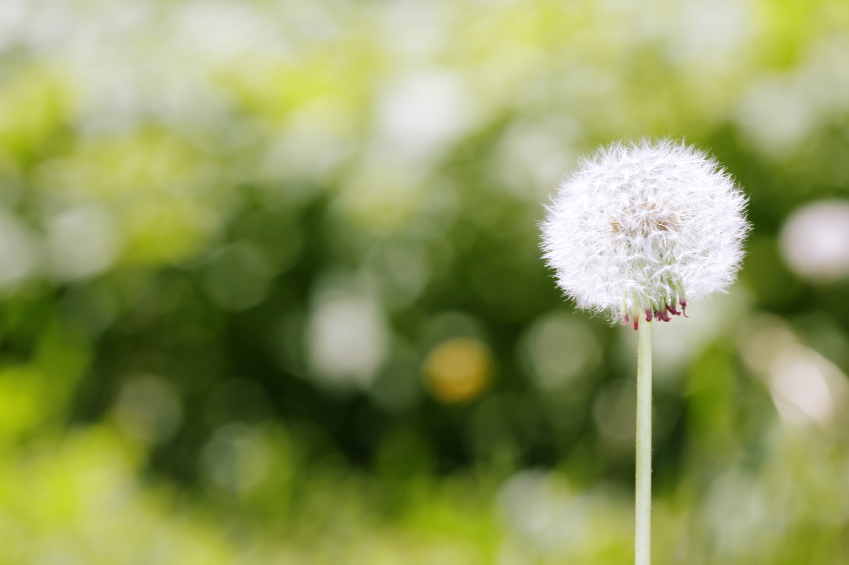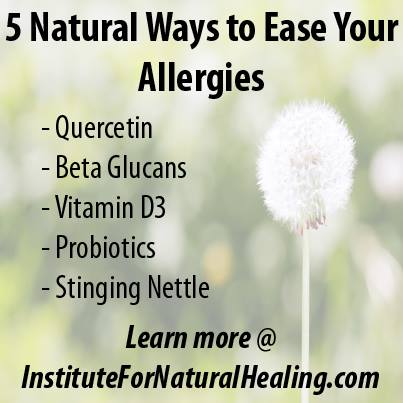It’s a fact…
Allergy meds—even if they didn’t have dangerous side effects—won’t ever work. They don’t get to the root of the problem. Allergies are a sign your body is attacking itself. And it’s usually in several different ways.
Treating your allergies before your body goes into attack mode makes more sense. Here are five ways to defend your body as allergy season kicks off.
1. Quercetin: This antioxidant lowers inflammation. Quercetin also stops immune cells from releasing histamines. They cause the inflammation that leads to allergic reactions.1 And taking it doesn’t make you drowsy or cause memory gaps like some allergy medications.2
You’ll find it in apples, citrus fruits, onions, and tea. You can also take it as supplement in pill form or as a liquid extract for temporary relief of allergy symptoms.
2. Beta Glucans: They’re a type of sugar that comes from cell walls of yeast, algae, fungi, and plants. Beta glucans activate your macrophages.3 These are the immune cells that fight off germs and tell other cells to help defend your body. But not all beta glucans work the same.
One study on beta 1, 3/1, 6 glucan found that it reduces total allergy symptoms by 28 percent. And any symptoms subjects still experienced were over 50 percent less severe.4 But unless you feel like eating brewer’s yeast all day long, your best bet is to get it as a supplement.
3. Vitamin D3: The sunshine vitamin fights off bacteria that cause your allergies in the first place. Taking just 4,000 IU of vitamin D3 can improve your allergy symptoms by 30 percent in just a week. And if you stick with it, you could see a 70 percent improvement after four months.5
You can get vitamin D3 from being out in the sun. Eating wild-caught salmon and mushrooms will also provide you with it. But for allergies, find a 4,000 IU supplement that comes from a quality, natural source. You shouldn’t have any trouble finding a good one online, so leave the drugstore vitamins on the shelf.
4. Probiotics: Your gut is one of your body’s best defenses against invading bacteria. Just look at H. pylori. Roughly 70 percent of people with autoimmune symptoms—like allergies—have it.6 Probiotics can prevent these bacteria from turning your immune system against itself. And if you already have the infection, probiotics can help ease the inflammation.7
You can support your gut by eating synbiotics. These contain the good bacteria that help fight off harmful germs. But it also contains the food that fuels the good bacteria. Asparagus, onions, and artichokes are symbiotic foods. You can also take a probiotic supplement. Just make sure to find one that gives you at least 1 billion live colony forming units (CFUs) per serving.
5. Stinging Nettle: Despite its strange name, stinging nettle stops your body from producing the histamine that causes inflammation. It also interferes with the way your body sends and receives pain signals.8
Stinging nettle isn’t something you can eat on its own—or even add to a dish. But you can find its extract as a supplement. It’s also available as a tea. It’s a satisfying way to help ease your allergy symptoms while getting the antioxidant benefits from the tea.
Don’t just treat your allergy symptoms when they pop up. By that point, your body is on the attack and you’re feeling miserable. Stop them from coming on the first place. These natural solutions will help keep you from tissue to tissue, and without having to take dangerous allergy drugs.
Like this Article? Forward this article here or Share on Facebook.
References:
1 http://umm.edu/health/medical/altmed/supplement/quercetin
2 http://www.ncbi.nlm.nih.gov/pubmed/11056414
3 http://www.lef.org/magazine/mag2009/dec2009_The-Immune-Enhancing-Benefits-of-Beta-Glucans_01.htm
4 http://onlinelibrary.wiley.com/doi/10.1002/fsn3.11/abstract
5 http://www.annallergy.org/article/S1081-1206(14)00012-X/abstract
6 http://www.medicinenet.com/helicobacter_pylori/article.htm
7 http://www.worldgastroenterology.org/assets/downloads/en/pdf/guidelines/19_probiotics_prebiotics.pdf
8 http://umm.edu/health/medical/altmed/herb/stinging-nettle


